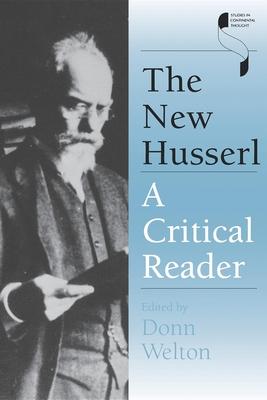The recent first-time publication of works from Edmund Husserl's later years, especially his Freiburg period, combined with new studies of his method and theories, has stimulated a remarkable shift in perceptions of the scope and significance of Husserl's transcendental phenomenology. Informed by a deep reading of not just the works published during Husserl's lifetime but also the countless lectures and manuscripts he wrote in his later years, the essays in The New Husserl provide an alternative approach to Husserl by examining his work and his method as a whole and by probing issues, old and new, that occupied him during this exceptionally productive period. The noted Husserl specialist Klaus Held opens the book with two essays, published here in English for the first time, that provide an insightful and lucid introduction to Husserl's central texts. Other prominent Husserl scholars treat his most important and lasting contributions to philosophy, such as the concept of intentionality, the theory of types, time-consciousness, consciousness and subjectivity, the phenomenological method, and the problem of generativity. By inviting readers to discover this "new Husserl," the present collection is likely to shape scholarly discussions of Husserl's thought for some time to come.

The New Husserl: A Critical Reader
The recent first-time publication of works from Edmund Husserl's later years, especially his Freiburg period, combined with new studies of his method and theories, has stimulated a remarkable shift in perceptions of the scope and significance of Husserl's transcendental phenomenology. Informed by a deep reading of not just the works published during Husserl's lifetime but also the countless lectures and manuscripts he wrote in his later years, the essays in The New Husserl provide an alternative approach to Husserl by examining his work and his method as a whole and by probing issues, old and new, that occupied him during this exceptionally productive period. The noted Husserl specialist Klaus Held opens the book with two essays, published here in English for the first time, that provide an insightful and lucid introduction to Husserl's central texts. Other prominent Husserl scholars treat his most important and lasting contributions to philosophy, such as the concept of intentionality, the theory of types, time-consciousness, consciousness and subjectivity, the phenomenological method, and the problem of generativity. By inviting readers to discover this "new Husserl," the present collection is likely to shape scholarly discussions of Husserl's thought for some time to come.